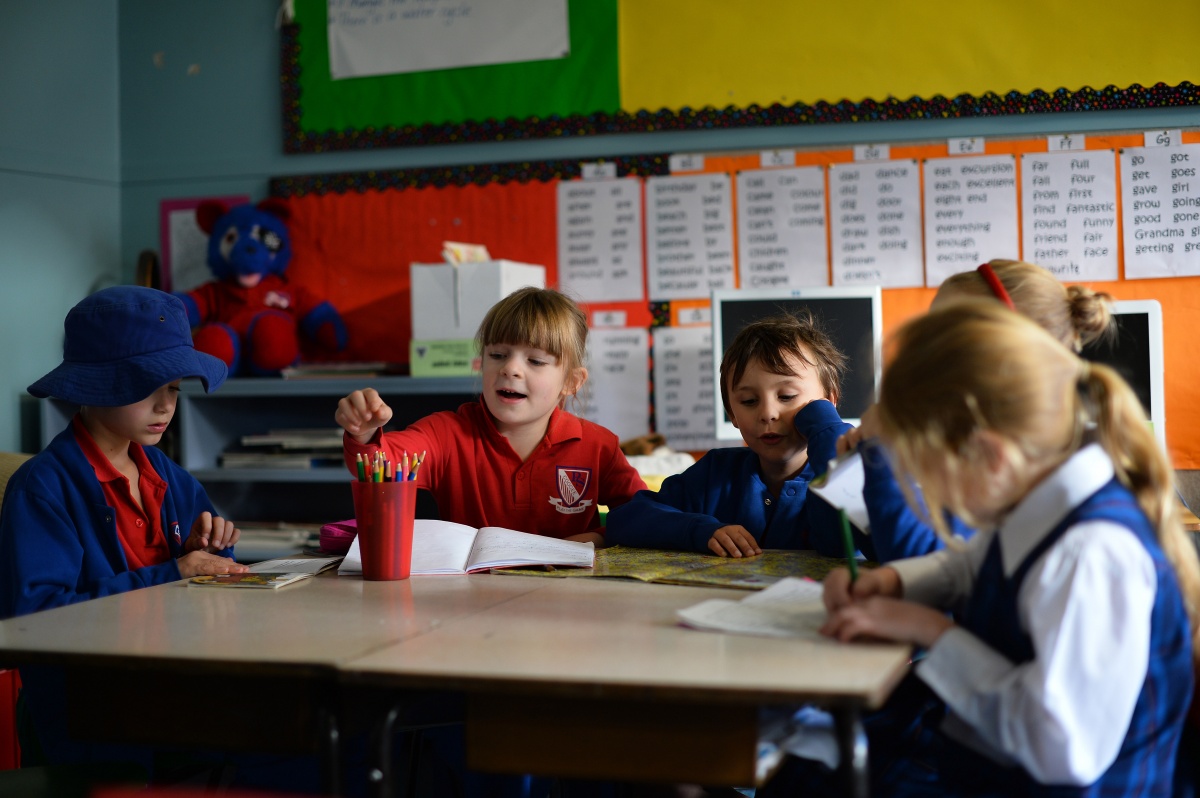School is one of the most carefully considered choices we make for our child. Parent’s pressure on their child to do the best is another of the repercussion of living in a competitive society. Sending our child to the best school is one of the ways of getting them to do the best. I lived in Karachi when my son crossed age four. I wanted him to get into the best school in Grade One. I thought it as a way to ensure that he exceled in life. At that tender age, I sent him for tuition for three hours after school. With pre-school and tuition every day, in two months he became pale and got sick for a couple of times. To get the admission form of that school, we stood in the queue at five in the morning. On the test-day, while he was giving his four-hours-long test I talked to the other parents. Those with their elder kids in the same school shared that their child eats and sleeps with books, goes out for play for an hour once a week, and misses all the social gatherings. Was this the life I wanted my son to live for the next ten years? NO. Was I ready to sacrifice his social development for the sake of the academic excellence? NO. The decision was made and I even did not bother to check the test-result.

These days, I am reading literature on the impact of school on child’s motivation. It tells me that I made the right decision of not selecting the best school for my son. It tells me that being in the company of the too-good is not academically and socially good for an average child. The feeling of being misfit is hard to overcome. If the too-good fellows surround a child, he/she feels low. This low feeling affects self-confidence. The negative impact on confidence reduces self-faith in the ability to do things. This confidence is directly and significantly related to achievement. In fact, the self-belief that one can do things is the first step towards achievement. And selection of a wrong school can shake this first step. Let me elaborate the relationship of self-belief and achievement. In the modern world, or may be in the older world also, success comes from keeping-on doing things you believe in, bouncing back to failures, and by putting in the right amount of effort. This behavior comes from the confidence that one can overcome the hurdles and can get the things done eventually. This confidence is not easy to achieve. Parents need to make huge investment in this area. In my recent research, I have found that the parents of the most successful children have more faith in their child and make fewer academic inquiries. It does not suggest that asking your child about the academic progress has negative effects. It rather says that only investing in academic inquiry by the parents does not work. Parents need to have faith that their child can do things, and they should be able to share that faith with their child. This faith boosts self-belief of the child that things can be done, thus ensuring success.

Peers are another source of the self-belief in ability. We use a reference to measure abstract things. Ability, being an abstract commodity, is self-evaluated in relation to social and personal comparisons. Peers’ ability is one of those comparisons. Children judge their own ability in relation to their colleagues. Peers with above-average ability can bring down the self-belief in ability. For this reason, a child with average ability in an above-average school is found to have less confidence, as compared to another child with the same average ability but in a below-average school. I know, your instant reaction is of disbelief. We are told that sending our child to the best school is one of the ways to ensure his/her success in life. But empirical findings question that belief. The theory called “Big-Fish-Little-Pond” tells that children in above-average school have pride in their school, but this pride is overshadowed by the negative effect of comparison with children of high ability. This negative effect was first found in the western countries, which have separate schools for high-ability students. Later it was found significant in the eastern countries, which offer selection of school to parents. Thus, the selection of school has to be made carefully for ensuring academic success of your child.
The selection of the best-school-in-the-town has negative social influence on the child. Out of ambition, some parents from middle social-class select the school for their child where most of the children come from the upper social-class. This gap in socio-economic background has its own psychological effects on children. Your child should be able to replicate what he/she listens from his peers. I remember my son asking for vacations in the Caribbean Island when he was in Grade Four as two of his classmates were going there. I was unable to offer that the same year but put the visit to the islands on my list of to-do-things for the next couple of years. Be ready for such challenges but do not kill yourself. Selection of a school for children from a higher socio-economic class can keep you in such pressure constantly or can lower the self-esteem of your child, and neither of these is good. Remember, both self-faith in ability and self-esteem are as necessary for success in life as much as are the scores in the high school exams. In practical life, the push towards success comes equally from confidence and approach towards life, as from the academic success. Thus, while selecting a school for your child, make sure it gives positive vibes to self-belief in ability as the latter is the route to confidence and academic success.